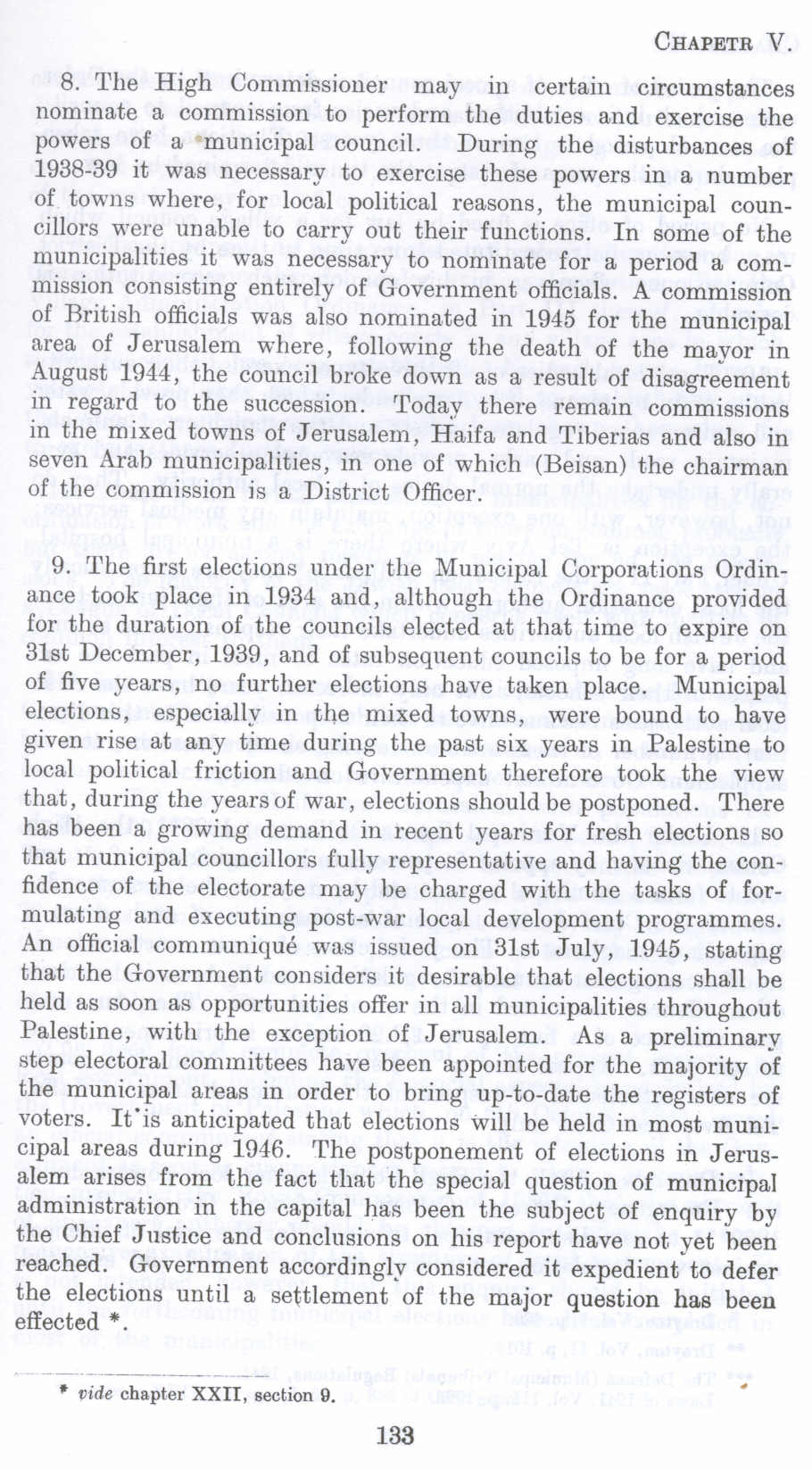| Prev | Next |  |
| Prev | Next |
| PalestineRemembered | About Us | Oral History | العربية | |
| Pictures | Zionist FAQs | Haavara | Maps | |
| Search |
| Camps |
| Districts |
| Acre |
| Baysan |
| Beersheba |
| Bethlehem |
| Gaza |
| Haifa |
| Hebron |
| Jaffa |
| Jericho |
| Jerusalem |
| Jinin |
| Nablus |
| Nazareth |
| Ramallah |
| al-Ramla |
| Safad |
| Tiberias |
| Tulkarm |
| Donate |
| Contact |
| Profile |
| Videos |
British Mandate: A Survey of Palestine: Volume I - Page 133 |
Disclaimer
The above documents, article, interviews, movies, podcasts, or stories reflects solely the research and opinions of its authors. PalestineRemembered.com makes its best effort to validate its contents.


Post Your Comment
*It should be NOTED that your email address won't be shared, and all communications between members will be routed via the website's mail server.
8. The High Commissioner may in certain circumstances nominate a commission to perform the duties and exercise the powers of a municipal council. During the disturbances of 1938-39 it was necessary to exercise these powers in a number of towns where, for local political reasons, the municipal councillors were unable to carry out their functions. In some of the municipalities it was necessary to nominate for a period a commission consisting entirely of Government officials. A commission of British officials was also nominated in 1945 for the municipal area of Jerusalem where, following the death of the mayor in August 1944, the council broke down as a result of disagreement in regard to the succession. Today there remain commissions in the mixed towns of Jerusalem, Haifa and Tiberias and also in seven Arab municipalities, in one of which (Beisan) the chairman of the commission is a District Officer.
9. The first elections under the Municipal Corporations Ordinance took place in 1934 and, although the Ordinance provided for the duration of the councils elected at that time to expire on 31st December, 1939, and of subsequent councils to be for a period of five years, no further elections have taken place. Municipal elections, especially in the mixed towns, were bound to have given rise at any time during the past six years in Palestine to local political friction and Government therefore took the view that, during the years of war, elections should be postponed. There has been a growing demand in recent years for fresh elections so that municipal councillors fully representative and having the confidence of the electorate may be charged with the tasks of formulating and executing post-war local development programmes. An official communique was issued on 31st July, 1945, stating that the Government considers it desirable that elections shall be held as soon as opportunities offer in all municipalities throughout Palestine, with the exception of Jerusalem. As a preliminary step electoral committees have been appointed for the majority of the municipal areas in order to bring up-to-date the registers of voters. It' is anticipated that elections will be held in most municipal areas during l!l46. The postponement of elections in Jerusalem arises from the fact that the special question of municipal administration in the capital has been the subject of enquiry by the Chief Justice and conclusions on his report have not yet been reached. Government accordingly considered it expedient to defer the elections until a settlement of the major question has been effected*.
____________________
* vide chapter xxII, section 9.
Page 133